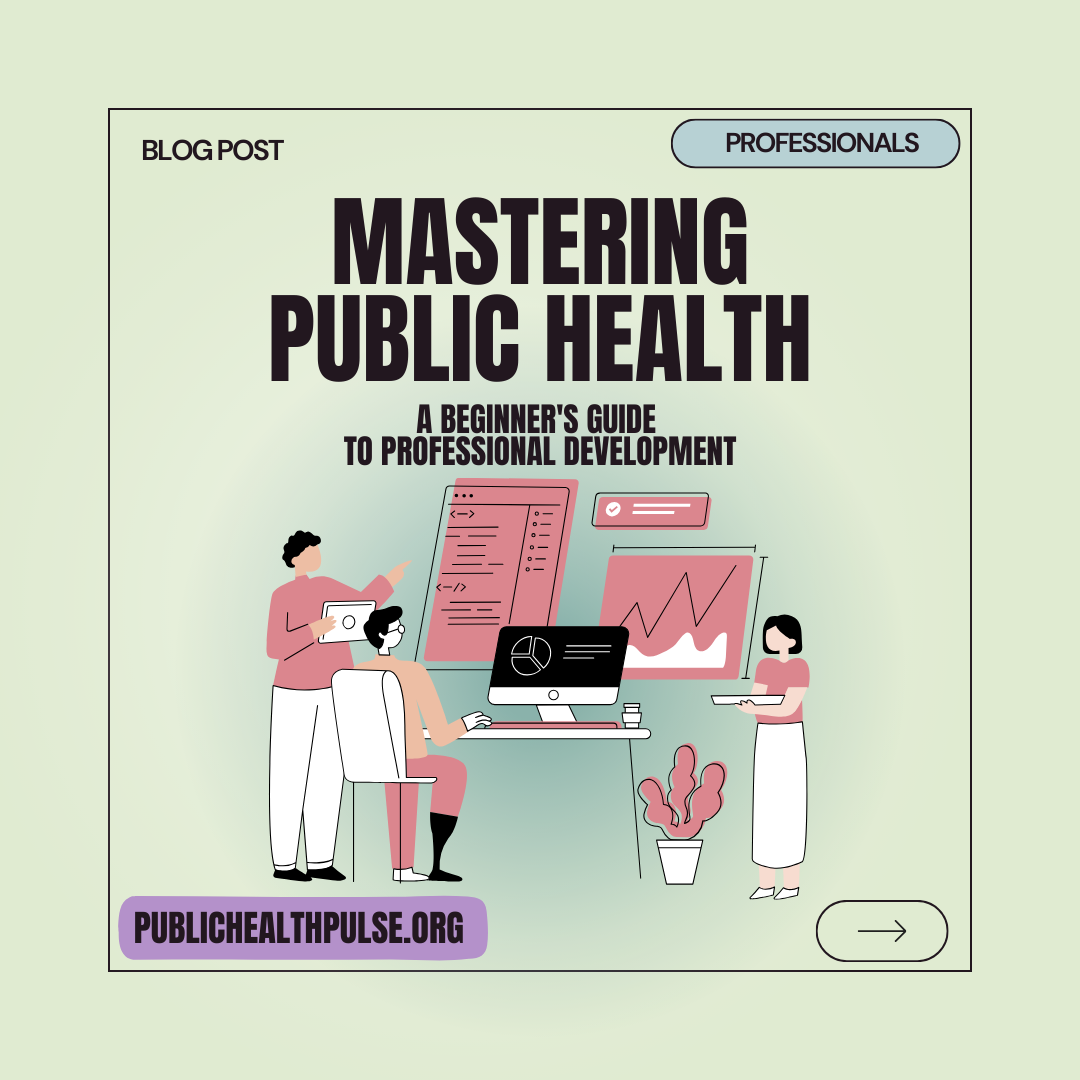In the dynamic world of public health, success is not merely achieved; it’s crafted through a robust foundation of continuous learning, strategic planning, and purposeful networking. In this section, we unveil a blueprint designed to elevate your public health journey—offering insights into the transformative power of education, certifications, and the art of networking for lasting impact.
Educational and Professional Development
Emphasizing the Importance of Continuous Learning
Public health is a field that evolves with the ever-changing needs of society. Continuous learning is not just encouraged; it’s a prerequisite for staying relevant and impactful. Whether you’re a recent graduate or a seasoned professional, the commitment to ongoing education is a testament to your dedication to the field. It’s not just about keeping up; it’s about staying ahead and making a difference that resonates globally.
Strategies for Continuous Learning:
- Stay Informed: Navigate the evolving landscape of public health by staying informed with the latest research, trends, and breakthroughs. Regularly read reputable public health journals, attend conferences, and follow industry updates to stay informed about the latest research, trends, and emerging issues.
- Online Courses: Enroll in online courses from reputable platforms such as Coursera, edX, or Udemy. These platforms offer courses on a variety of public health topics, allowing you to deepen your knowledge at your own pace. Chart your educational path with courses that align with your passion and career aspirations.
- Professional Memberships: Join professional organizations like the American Public Health Association (APHA) or regional public health associations. Membership often comes with access to exclusive resources, webinars, and networking opportunities.
Recommendations for Certifications, Workshops, and Additional Training
Certifications and workshops enhance your skill set, making you a more valuable asset in the public health landscape and workspace. They not only demonstrate your commitment to professional development but also provide practical, applicable knowledge that can be immediately implemented in your work. Discover the transformative impact of targeted education and hands-on experiences that shape your expertise.
Recommendations:
- Certifications: Pursue certifications relevant to your interests and career goals. Examples include Certified in Public Health (CPH), Project Management Professional (PMP), or Certified Community Health Worker (CCHW) certifications.
- Workshops and Conferences: Attend workshops and conferences to gain hands-on experience and exposure to cutting-edge practices. These events are not just about learning but also about networking with professionals in your field.
- Cross-Disciplinary Training: Explore training outside the traditional public health realm. For example, courses in data science, communication, or management can provide valuable skills that complement your public health expertise.
Networking in Public Health
Practical Tips for Effective Networking within the Public Health Community
Networking is a cornerstone of success in any field, and public health is no exception. Building meaningful connections opens doors to opportunities, collaboration, and a deeper understanding of the multifaceted nature of public health work.
Practical Tips:
- Attend Industry Events: Attend local and international public health conferences, workshops, and seminars. These events provide an excellent opportunity to meet professionals, researchers, and organizations in the field.
- Utilize Online Platforms: Leverage professional networking platforms like LinkedIn to connect with colleagues, mentors, and potential collaborators. Join relevant groups and participate in discussions to expand your network.
- Informational Interviews: Conduct informational interviews with professionals whose work inspires you. Learn about their career paths, seek advice, and establish connections that may lead to future collaborations.
Sharing Personal Anecdotes or Success Stories Related to Networking
Networking isn’t just a professional obligation; it’s a journey filled with stories of connection, collaboration, and mentorship. Sharing personal anecdotes and success stories can inspire others to approach networking with enthusiasm and authenticity.
Stories of Networking Success:
- The Mentorship Connection: Highlight a personal experience where networking led to a meaningful mentorship. Share how mentorship positively impacted your career trajectory and personal growth.
- Collaborative Projects: Showcase a project or initiative that originated from a networking connection. Discuss how collaboration enhanced the project’s impact and the lessons learned through the process.
- Career Advancements: Share stories of career advancements or job opportunities that resulted directly from networking efforts. Emphasize the value of maintaining professional relationships over time.
Conclusion
Building a strong foundation in public health is a continuous journey of learning, growth, and connection. By prioritizing continuous education, pursuing relevant certifications, and actively engaging in networking, you’re not just building a career; you’re contributing to the broader mission of promoting health equity and positive outcomes for communities around the world. Remember, in public health, your foundation is not just about what you know; it’s about who you know and how you leverage those connections to make a lasting impact.

No Responses